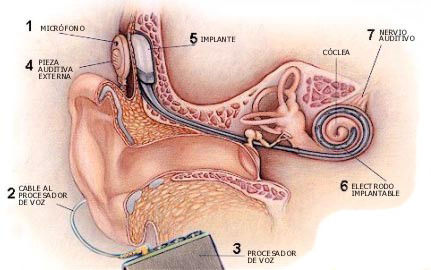A cochlear implant is an electronic device that enables individuals with severe deafness or hearing impairment to recover their hearing and is the only effective treatment that exists today for this type of deafness. Hearing impairment is considered to be severe when the patient cannot understand spoken words, even when wearing a hearing aid.
An operation is performed to fit the cochlear implant in the inside of the ear, which transforms sound into an electric signal, which in turn stimulates the auditory nerve.

The procedure takes around 90 minutes, is carried out under general anaesthetic and only requires an overnight stay in hospital.
After surgery, most patients will need monitoring and/or a speech therapy to correctly interpret the auditory information transmitted by the cochlear implant and therefore understand and use language correctly.
Cochlear implants can be used by patients between 6 months and 80 years of age. In children the implants are highly effective, enabling their normal linguistic development if they are fitted early on (ideally before 3 years of age). The only requirement in elderly patients is good health. In adults who have lost their hearing after having already developed the ability to hear (after having acquired language), results will depend on how long ago the hearing loss occurred.